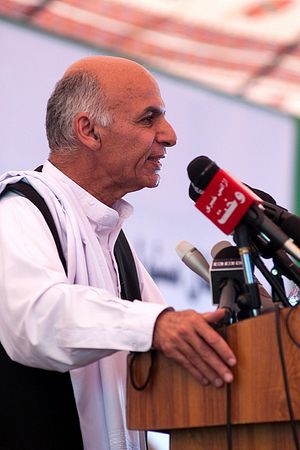Afghanistan’s recent electoral crisis has finally been resolved through a backroom deal negotiated in part by United States Secretary of State John Kerry. This deal stipulates that both candidates will share power. Many have criticized the secrecy and opacity of the deal, which undoubtedly went around existing constitutional arrangements. The criticisms generally question the point of an election that resulted in both candidates carving up power.
However, the deal was beneficial and represents a step forward in the natural evolution of Afghanistan’s political system. Governance and institutions do not simply emerge overnight. This is especially true in countries with little to no state apparatus or bureaucracy. Thus, stability in such countries must gradually evolve over a period of time through various arrangements, compromises, experiments, and tinkering. It must evolve in a manner specific to each individual country and must take into account each country’s political and social structure. Governance in such countries cannot rigidly conform to a plan because such hardheaded legalism discourages compromise and can ultimately destabilize weaker states.
What really matters is that a deal has been secured in Afghanistan that encourages the continuance of stability in that country. This is ultimately more important than the question of who actually won the election. Afghanistan has been able to tinker with its laws to allow for a different political arrangements, which ultimately help it evolve its political system towards a more stable set-up agreeable to all its actors. Afghanistan previously had an overly centralized and powerful executive president whose powers were at odds with the sociopolitical reality of Afghanistan. A winner-takes-all system is simply not viable in a country with a tribe-based tradition of compromise. This tradition, expressed in the region’s many jirgas, is actually more similar to the political arrangements now emerging in Afghanistan, and is likely to be far less acrimonious in the long run. But make no mistake: expect much more tinkering down the road.
Modern representative democracy, which is rooted in England and the English parliament, was itself the result of hundreds of years of compromise and tinkering. The English parliament went from being a consultative body for the monarch to a vehicle for raising revenue legitimately to an increasingly representative body. None of this was planned and each step represented an adaptation to circumstances of the time. Many of the quirks of modern representative democracy, such as bicameralism, betray their organic rather than planned origins.
The constitution of the United States was also the result of compromise and negotiation and would not have been possible if each delegate at the constitutional convention stuck to his position. It should be noted that the U.S. Constitution itself went around the contemporary American Articles of Confederation, and was thus an extralegal effort. Finally, the U.S. Constitution was the product of closed sessions and would probably not have been possible if the drafting process was more open – too many cooks spoil the broth after all, and the drafting process would have become more politicized.
Democracy is really a means to an end and not an end in and of itself. The true goal is good governance that takes into account both the rights of the individual and the issues that arise in society. We should not get lost in the relatively minor issues of sticking to form because the form of good governance is a work in progress without a blueprint or final destination. What matters more, especially in unstable and developing countries is the establishment of a workable state. When there are many factions or groups competing for power, it is obvious that compromise must be a key component in establishing a stable state; in the case of Afghanistan, it is obviously a superior choice than civil war. But even without the threat of civil war, compromise and consultative processes are useful in a country such as Afghanistan because they at least put everyone on the same page, working toward solving common problems. This sort of compromise is not limited to Afghanistan; the German government of Angela Merkel is a grand coalition composed of the main right and left parties in Germany.
Without this sort of thinking, democracy or any political order not held together by brute force would break down. With multiple players each pursuing their own agendas and dissenting for the sake of dissent, systems paralysis occurs. Such paralysis is now a frequent phenomenon in the United States, vindicating the worst fears of the American founding fathers about the problem of factionalism. All this strengthens the argument that political systems should to be structured in a way to allow for greater compromise and consultation; once the actual business of elections are over, politicians need privacy and discretion to actually govern. Thus, Afghanistan’s unity deal actually represents a positive step in the evolution of governance. Its underlying principles of compromise rather than rigid legalism should be applied to all countries.

































